What makes a love story great? What makes it terrible? A thousand people will give you a thousand different answers. As I'm about to share some of my favorite and least favorite love stories of all time, it seems wise to let you know what my criteria are.
You can predict some of them: rich characters, strong writing, an intriguing plot, etc., etc. But beyond that, one vital factor often found missing is a model of romantic love that's, you know, actually healthy for the people involved in it. Conversely, terrible love stories can be beautifully written and enticing, but the defining factor for me is the subtle (or not so subtle) idolization of toxic relationship models.
The stories I discuss here will come from a variety of mediums, though the stories themselves must have at least a moderate degree of critical success (read as: your Aunt Debby's smutty fanfiction won't be on my list) and the romantic component must take place on the main stage. Now, let's get started.
The Worst Love Stories
![]() 'The Great Gatsby' by F. Scott Fitzgerald
'The Great Gatsby' by F. Scott Fitzgerald
The reason Gatsby is such a fantastic novel is that it's a terrible love story. Daisy is a resonant and believable character who readers wish they could hate more than they actually do. These characters allow themselves to be run by selfishness and fear in a way that brings disaster to those around them. But it's not just fear we get to see playing the role of villain. Gatsby's great vice is his "gift for hope." It's his insistence in returning to the past and obtaining a perfect love story that ultimately leads him to perfect ruin.
But, you know ... Gatsby turned out all right, at the end.
![]() 'Romeo and Juliet' by Billy Shakespeare
'Romeo and Juliet' by Billy Shakespeare
Let me preface this by giving you some insider information: Romeo and Juliet is not a love story! Or, rather, it's the story of two naive kids trying to discover the meaning of love in a world where they're surrounded by blind hatred and deeply ingrained violence. It's a wonderful story when read as being about a society where the children fractured by the insistent hatred of their parents, but it's Romeo and Juliet's inability to find a healthy form of love that's so striking. Yet somehow the vast majority of readers hear the opposite message.
Pay attention to what actually happens: Romeo is on the rebound (he romanticizes another woman in his first scene), hits on a 14-year-old girl at a party, seduces her, elopes with her, and kills her cousin. The pair are unwilling to wait to see each other in the time the law would allow, so Juliet fakes her death, leading to a double suicide. That Shakespeare brought poetic language to their juvenile love doesn't somehow make this relationship healthy, good, or admirable.
![]() 'Twilight' by Stephenie Meyer
'Twilight' by Stephenie Meyer
I've written a defense of Twilight. I don't think it's the world's worst book. I think there's a lot to be learned from Meyer's talent for suspense. But Twilight's success makes me incredibly worried for the younger audience of the book.
The story's romantic element relies on about three books worth of abstinence porn paired with a love triangle. Now, I get the appeal of a love triangle, but in this case we have Bella receiving all her sense of value from two destructive relationships. Edward stalks her, wants to drink her blood, watches her sleep before he even knows her name, sabotages her car to protect her, and ultimately makes her one of the living dead—and somehow we're supposed to think this is romantic. Meanwhile, Jacob responds to frustration by throwing tools across the room, tries to get close to Bella by enabling a variety of self-destructive behaviors, and then falls in love with Bella's daughter—and everyone's just kind of okay with that?
Bella's inability to decide which shitty relationship model she wants is distressing enough, but then we have people on Team Edward or Team Jacob not only condoning but cheering for this version of "love." Forget that. I'm on Team Alice.
![]() 'Fifty Shades of Grey' by E.L. James
'Fifty Shades of Grey' by E.L. James
What started as Twilight fan-fiction somehow became the smuttiest work available at your local Barnes and Noble. And it sold!
Looking past the low-quality and repetitive writing, we find a plot that creates an amalgamation of several destructive relationship models. These are less characters than they are symbols, and the symbols are distressing: Christian is his power and success, Ana is her insecurity and naivety, and the skewed power dynamic is put on a pedestal. If there's something more than the novelty of a smutty novel selling this book, I'm not sure what that something is.
![]() 'The Notebook' (the book by Nicholas Sparks or the film; take your pick)
'The Notebook' (the book by Nicholas Sparks or the film; take your pick)
The obsession with the love triangle rears its head again, but this time so riddled with cliches and contrived plot moves that it's astonishing to me the story functions at all. The men in this story give an impossible-to-swallow level of devotion that Allie clearly doesn't deserve. Every plot move requires that you forcefully re-suspend your disbelief. Lying and cheating are somehow portrayed as romantic.
And yet people like this story. This manipulative, shallow garbage. It just ... it ... gah!
The Best Love Stories
![]() 'The Fault in Our Stars' by John Green
'The Fault in Our Stars' by John Green
Honestly, during my first read, I thought the book was good but not great. Since then, I've re-visited the story's ideas many times, shared favorite quotes with many friends, and otherwise felt the story continue to play through my mind. Apparently, I think it's more than just "good."
Hazel meets Gus at a cancer support group and begins moving toward a romantic relationship with him. However, Hazel's reluctance is more than mere teenage drama. "I'm a grenade," she reminds us. Having cancer victims as the romantic leads does more than add a (potentially sentimental) element of nuance: It makes the story about how to reconcile our desire for attachment and closeness with our mortality and the inevitability of loss.
The conclusion that "You don't get to choose if you get hurt in this world . . . but you do have some say in who hurts you" is the best way I've ever heard someone argue that love is worth it. I won't spoil anything more, since the ideas are best when fresh, but I will say that I've spent a lot of time lately thinking about little infinities.
![]() Orpheus and Eurydice
Orpheus and Eurydice
The story of Orpheus and Eurydice is complicated to say the least, and its many renditions have brought in various elements that make this story more enjoyable or worrisome. Orpheus's obsession with and absolute reliance on his departed wife is by no means a healthy model of love. For me, though, the story is about trust.
Yes, trust. As Orpheus delves into the underworld, he is willing to fight through all manner of obstacles to reach Eurydice. The challenge Hades gives him, however, asks one more thing: To leave and trust that Eurydice is with him. And in case you don't already know this story, Orpheus fails that final test, turning back only to see Eurydice being pulled back into the depths of Hades.
Trusting that the ones we love are truly with us—and recognizing how letting go of that trust causes us to lose the very things we most want to hold onto—is one of the most resonant messages I've heard about love.
![]() 'Stardust' (the book by Neil Gaiman or the film)
'Stardust' (the book by Neil Gaiman or the film)
While the book and film are entirely different beasts, both are fantastic journeys that call blind-passion love into question. While the movie opts for a more traditional romantic plot, both versions of the story are charming and memorable. In both iterations, the balance between adventure, self-discovery, humor, and fantasy makes for an intriguing dive into the realm beyond The Wall.
In the film, the great acting (including hilarious performances from Robert De Niro and Ricky Gervais) combines with a strong script and beautiful music for an all-around stellar experience. The book, meanwhile, is written by Neil Gaiman—so of course it's great.
![]() 'The Painted Veil'
'The Painted Veil'
Brilliant writing comes together with brilliant acting to create one of the best romantic stories I've ever seen. A period drama set in China in the 1920s, the film is an adaptation of the W. Somerset Maugham book of the same title. But you wouldn't think of this story as "romantic" based on the premise.
Dr. Fane (Edward Norton) woos Kitty (Naomi Watt) and the two marry despite having almost nothing in common. Kitty has an affair and Dr. Fane catches her. As a way of punishing her, Fane threatens to divorce on the grounds of adultery unless she accompanies him to a small Chinese village where Fane has volunteered to help treat patients during a cholera outbreak. In that village, Kitty and Fane start to slowly see one another's virtues rather than insistently re-imagining each other as they would wish them to be. The characters are deeply human and, despite everything, sympathetic. If you haven't seen this movie, you should definitely give it a go.
![]() Jaheira's Loss (Baldur's Gate II)
Jaheira's Loss (Baldur's Gate II)
Perhaps it's just my nerdy nature that prompts a video game romance as my favorite love story, but no other game romances even came close to making the cut. Baldur's Gate II is a fantastic game on its own, and one of the romance options is so beautifully written and complex that I sometimes refer to Jaheira as the first woman I really loved.
I did a full run-down of the Jaheira romance over at my blog to detail why I'm such a big fan.
As I state in that entry:
Jaheira’s tale is more love story than romance; it is about overcoming loss, moving forward, and building something of beauty in spite of the odds. It portrays a relationship that supports and sustains each person. [...] They walk hand in hand into hell, and even the conspiring gods cannot separate them.
My guess is I haven't covered all your favorites and least favorites. Maybe I even put some of your top picks in my list of worsts and your worsts in my list and favorites. Let me know your nominations for the best and worst love stories of all time in the comments below.

About the author
Rob is a writer and educator. He is intensely ADD, obsessive about his passions, and enjoys a good gin and tonic. Check out his website for multiple web fiction projects, author interviews, and various resources for writers.
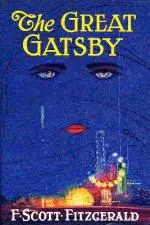 'The Great Gatsby' by F. Scott Fitzgerald
'The Great Gatsby' by F. Scott Fitzgerald
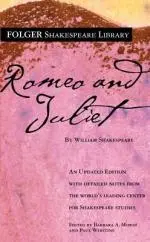 'Romeo and Juliet' by Billy Shakespeare
'Romeo and Juliet' by Billy Shakespeare
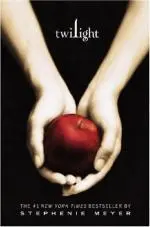 'Twilight' by Stephenie Meyer
'Twilight' by Stephenie Meyer
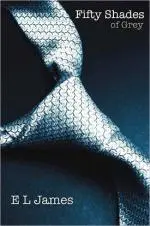 'Fifty Shades of Grey' by E.L. James
'Fifty Shades of Grey' by E.L. James
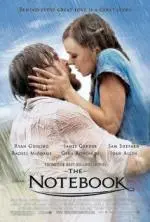 'The Notebook' (the book by Nicholas Sparks or the film; take your pick)
'The Notebook' (the book by Nicholas Sparks or the film; take your pick)
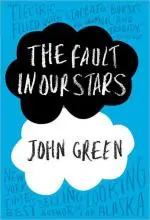 'The Fault in Our Stars' by John Green
'The Fault in Our Stars' by John Green
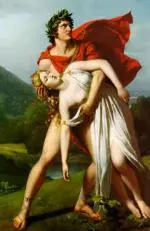
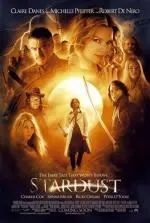 'Stardust' (the book by Neil Gaiman or the film)
'Stardust' (the book by Neil Gaiman or the film)
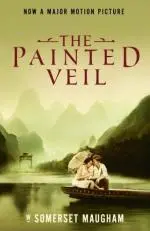 'The Painted Veil'
'The Painted Veil'
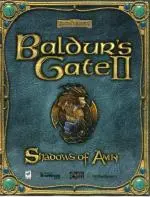 Jaheira's Loss (Baldur's Gate II)
Jaheira's Loss (Baldur's Gate II)







